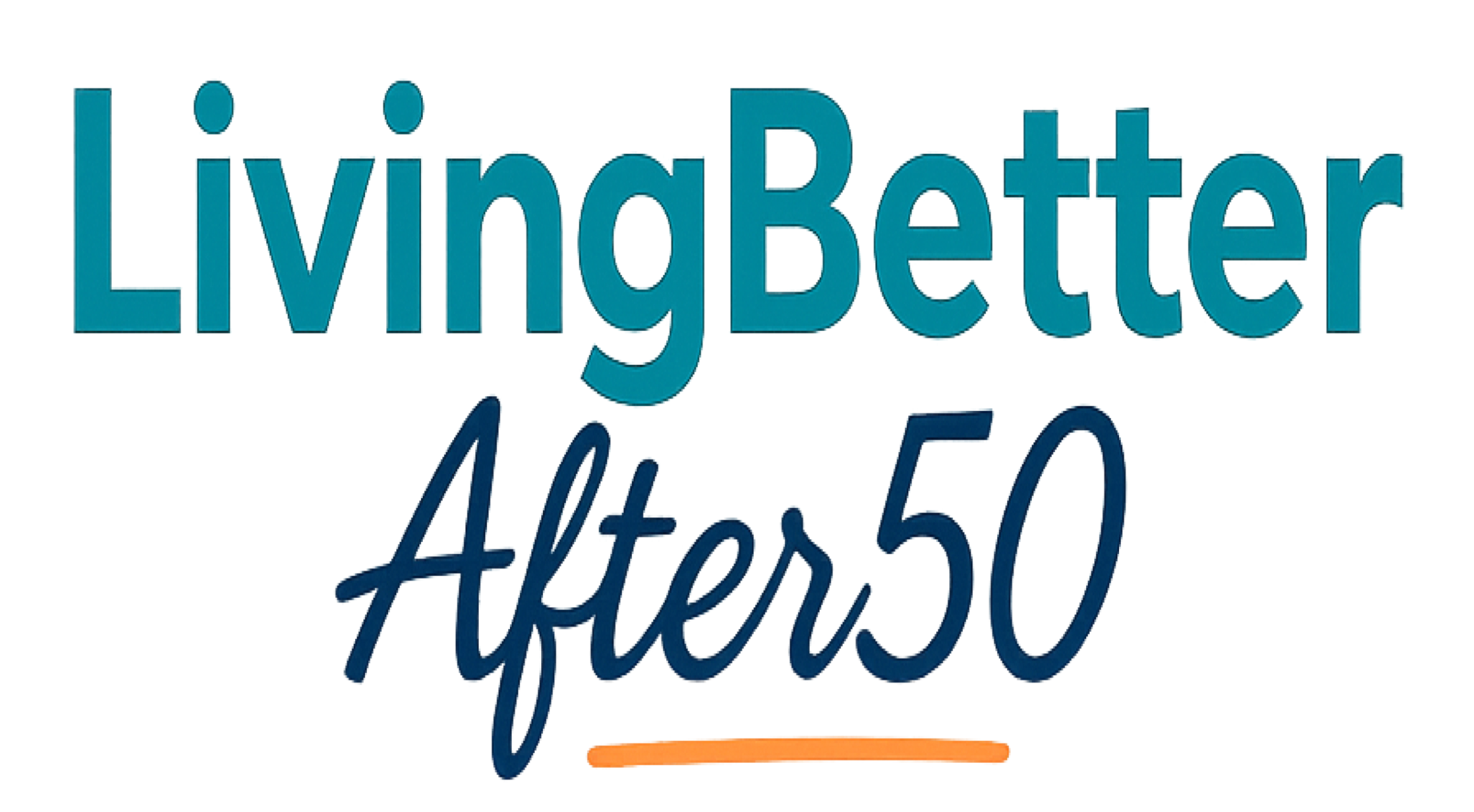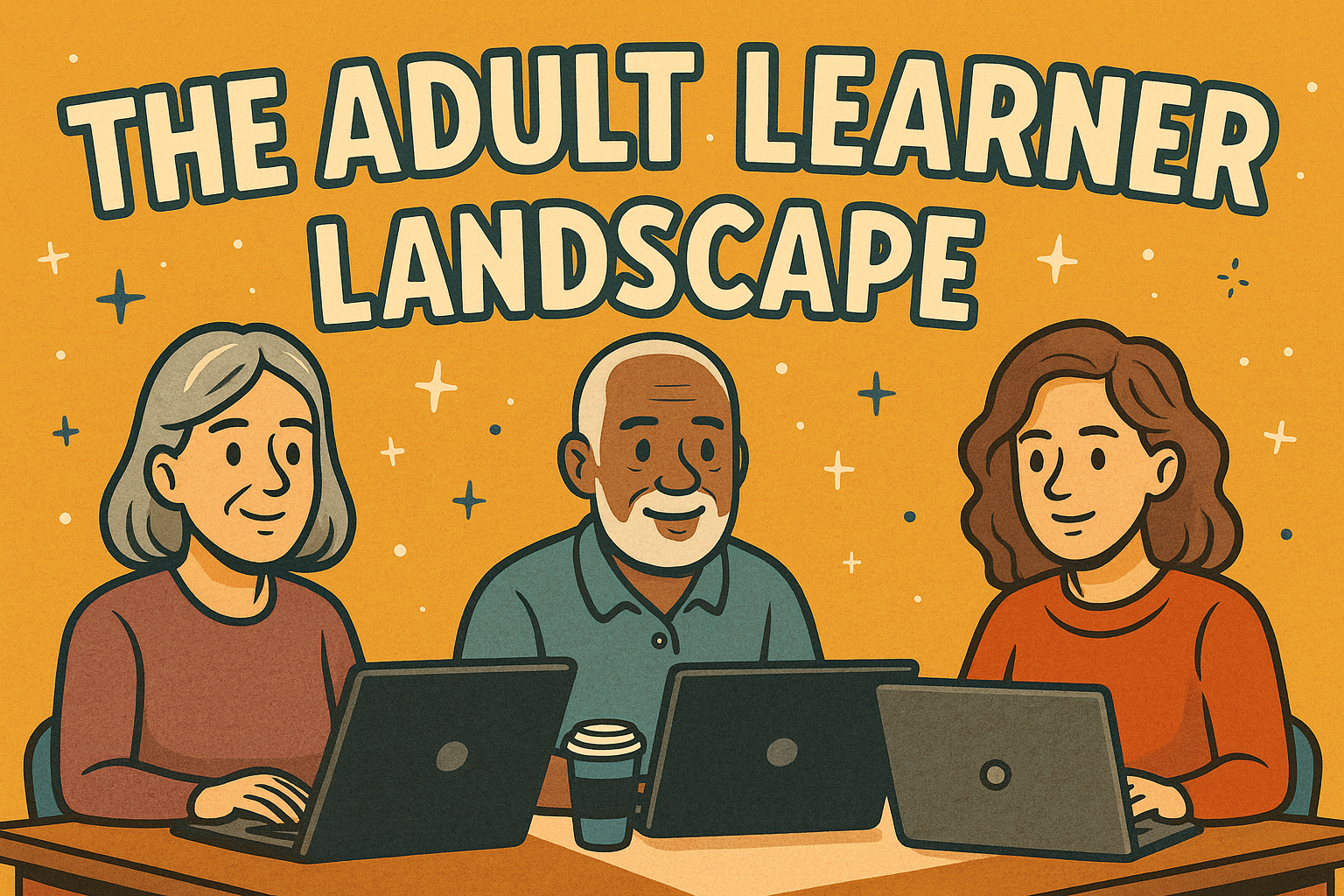Have you ever thought about going back to school? Well, it’s something you SHOULD consider.
And why not? You’ve worked hard. You’ve raised a family. You’ve got a career under your belt.
But maybe there’s still this itch you can’t quite scratch…
Maybe it’s finishing the degree you started years ago, finally studying that subject you’ve always loved, or making a career pivot before retirement.
And before you roll your eyes and say, “School? At MY age??” — let me stop you right there.
You’re not the only one thinking about it. Not even close.
In fact, adults over 25 now make up nearly one-third of all college students in the U.S. And get this — more than half a million students aged 50–64 are already enrolled in some kind of post-secondary education.
So if you’re picturing classrooms filled with nothing but twenty-somethings in hoodies, think again.
The truth is that going back to school after 50 isn’t weird. It’s not desperate. And it’s definitely not “too late.”
It’s smart.
Because education in midlife isn’t about competing with the 20-year-olds. It’s about investing in you. Your health. Your financial security. Your sense of purpose.
And that’s exactly what we’re diving into here: the surprising benefits, the practical “how-to,” and the resources that make going back to school at 50 (or 60, or even 70) totally doable.
Let’s start with answering the most common question…
Is Going Back to School Worth It?

Okay, we get it. Going back to school in your 50s sounds like a lot. Homework. Exams. Group projects (ugh).
Do you really want to sign up for that again?
Here’s why the answer just might be yes.
Education Can Literally Add Years to Your Life
No joke. Research shows men with a bachelor’s degree live about 12.9 years longer than those without one. For women, it’s about 10.4 extra years. That’s a whole bonus decade.
And it’s not just about how long you live — it’s how well.
Higher education is linked to healthier habits. Less smoking. Less heavy drinking. More exercising.
Your future self will thank you for keeping the brain busy.
Plus, staying mentally active through writing, problem-solving, and discussion strengthens your brain’s resilience.
Basically, it will keep you SHARP and BALANCED.
The Financial Upside Is Huge
Money matters.
Especially in midlife when you’re thinking about retirement, healthcare costs, and maybe even helping kids or grandkids.
The unemployment rate for folks without a high school diploma? Around 7.4%. But if you’ve got an associate degree, that drops to 3.6%. With a doctorate? Just 1.6%.
And the pay gap is just as wild:
- No diploma = about $504 a week.
- Bachelor’s degree = $1,156 a week.
- Professional degree = $1,745 a week.
That’s not pocket change. That’s vacations, mortgage payoffs, or finally buying the fancy coffee machine you’ve been eyeing.
It’s About More Than Money
Surveys show about 41% of adult learners go back for career advancement. A quarter do it for earning power. And about 30%? They do it simply to follow a passion.
Maybe you’ve always loved history. Or psychology. Or you’ve dreamed about teaching, starting a nonprofit, or moving into a whole new field. Midlife is when that itch gets louder.
And here’s the good news: it’s not too late to scratch it.
Navigating the Adult Learner Landscape
Okay, so picture this: you walk into a classroom (or log into Zoom) and expect to see nothing but twenty-year-olds with earbuds in and energy drinks on their desks.
Surprise. Nearly one-third of all college students in the U.S. are 25 or older. And more than half a million students between 50 and 64 are already back in school.
Add in the 65-plus crowd, and that number grows even higher. So no, you won’t be the “odd one out.”
You’ll be part of a movement.
Here’s what most midlife learners have in common:
- They’re juggling jobs (full-time or part-time).
- They’ve got families, kids, or even grandkids to look after.
- They’ve already built some career experience… and they’re hungry for what’s next.
That’s why schools are shifting to meet you where you are.
Online classes.
Hybrid setups.
Weekend workshops.
Evening sessions.
You name it, it’s on the menu.
In fact, universities that offer these flexible formats are seeing better retention for students over 30.
And here’s the best part: being an “older” student often gives you an edge. You’ve got discipline, perspective, and life experience the younger crowd just doesn’t.
You’re not here to kill time — you’re here with purpose.
One of my favorite stories? A woman I’ll call Tanya. She was 58, stuck in a job she’d outgrown, and nervous about going back to school.
She thought she’d be the only one with gray hair in the classroom.
Turns out, half her cohort was over 40. She leaned on online discussion boards, joined study groups, and four years later, walked across that stage with honors.
Point is: you belong. And once you see how many others are doing the same, it stops feeling like a gamble and starts feeling like an adventure.
How to Pick the Right Program
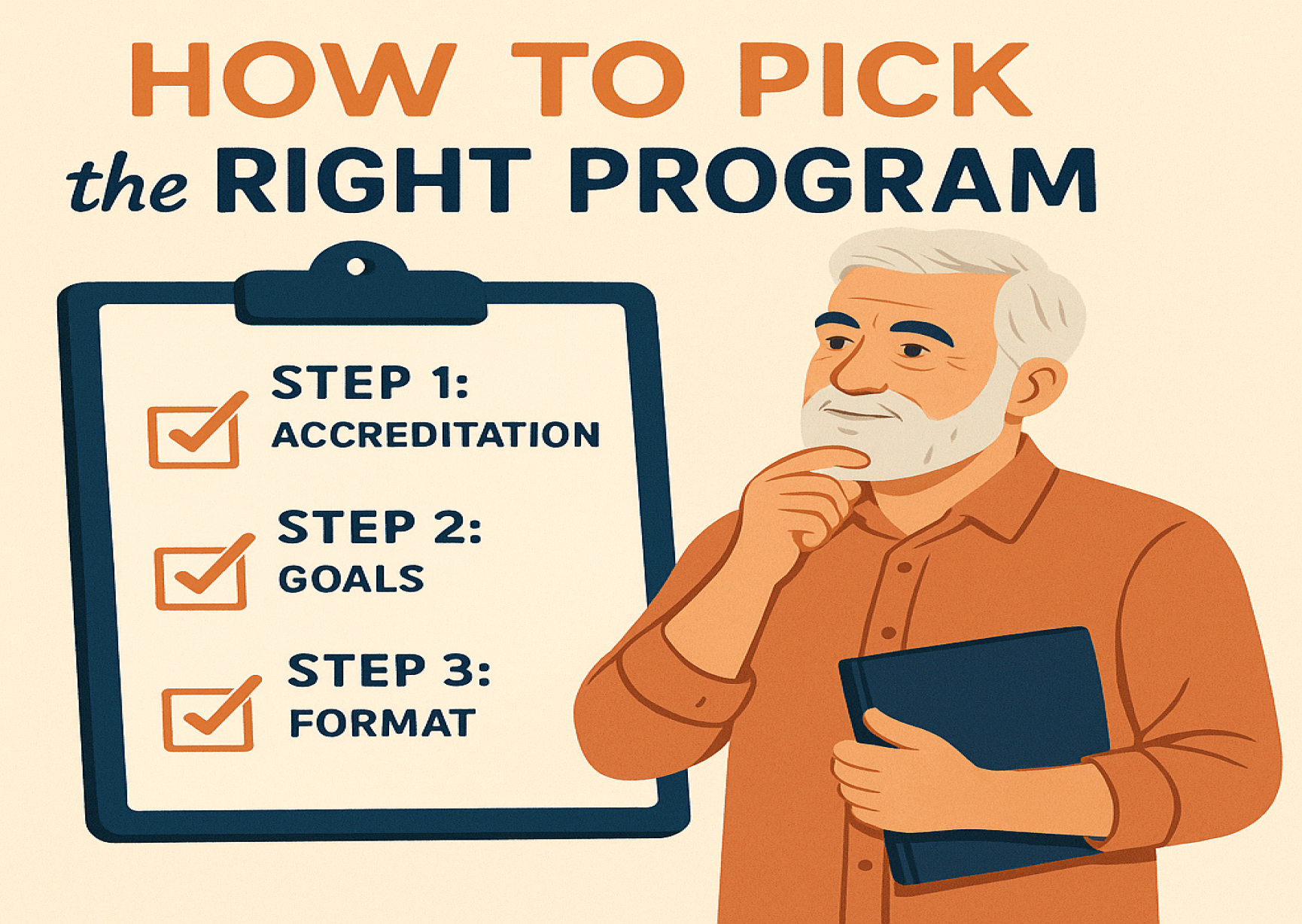
So you’ve decided to go for it. Awesome.
Now comes the big question: where do you start?
Step 1: Make Sure the School Is Legit
Not all schools are created equal.
Accreditation matters. It’s basically a stamp of approval that says, “Yep, this program is the real deal.” Employers respect it, financial aid depends on it, and your diploma will actually mean something.
So before you get starry-eyed about glossy brochures or flashy websites, check for accreditation.
Then look at the extras: tutoring, career counseling, online libraries, student support for adults. If a school doesn’t have resources for people like you, keep shopping.
Step 2: Match Your Program to Your Goals
Ask yourself: why am I going back?
- Want to finish a degree you started years ago? Great.
- Looking to pivot into a new career field? Perfect.
- Just chasing a passion you’ve always had? Even better.
The key is making sure the program fits your vision, not someone else’s. And here’s a pro tip: many universities will give you credit for past courses or even life experience.
Don’t leave that on the table.
Step 3: Choose Your Format
Online? In-person? A little of both?
Online programs are flexible, often cheaper, and can move at your pace. Perfect if you’ve got a busy job, family, or you just like learning in pajamas.
In-person classes, though, bring a different energy. Face-to-face conversations. Networking. The buzz of being in a room full of people who are learning right alongside you.
And if you’re not sure? Hybrid options let you dip your toes in both worlds.
Here’s the thing: there’s no “best” way. It’s about what fits your lifestyle, personality, and goals.
If you’re a Post-it note kind of person, maybe go hybrid.
If you’re a tech-savvy night owl, online might be perfect.
How to Pay for Your Return to School
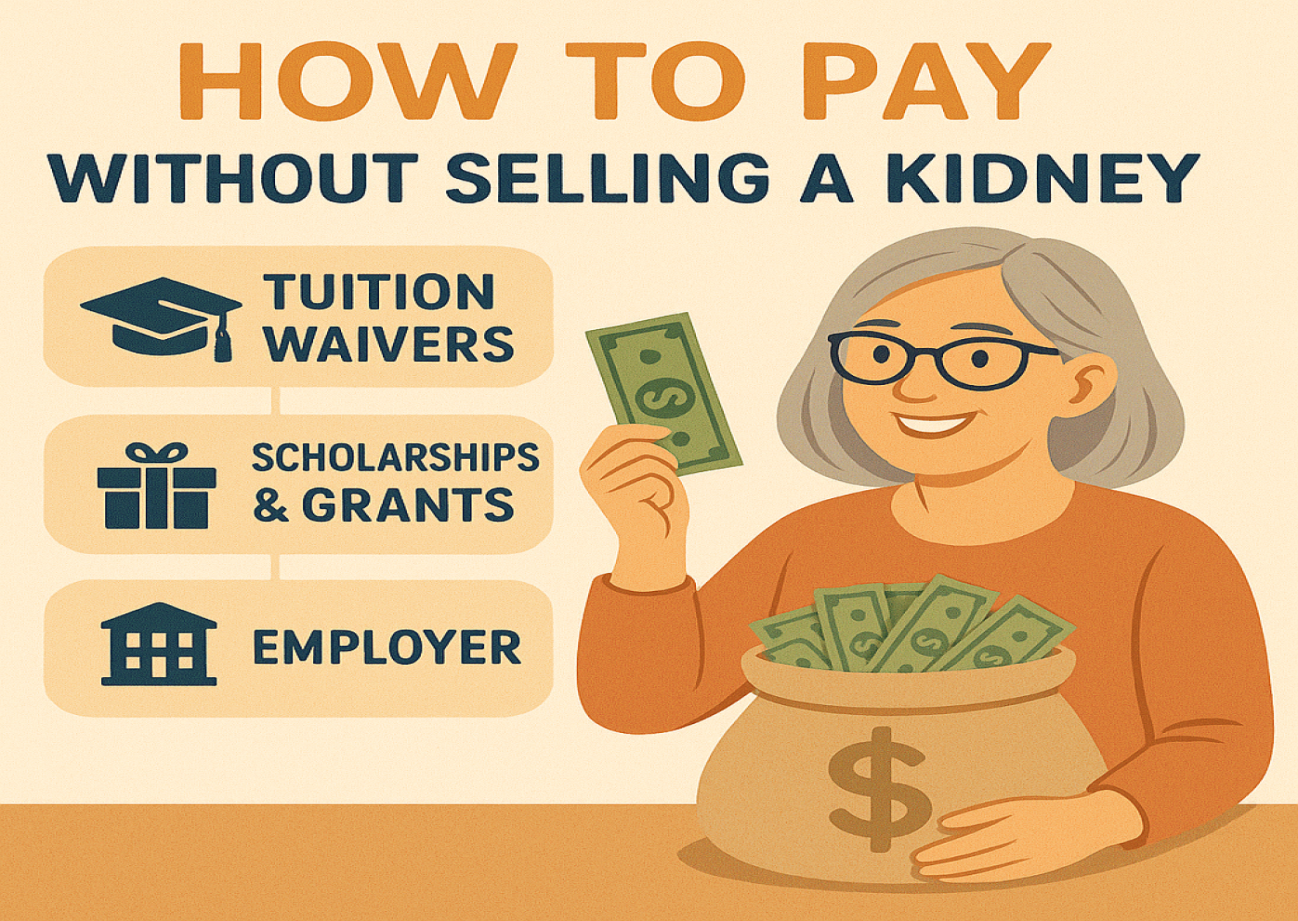
Alright, let’s talk about the part everyone dreads: money.
Because sure, the idea of going back to school sounds exciting… until you start imagining tuition bills big enough to make you choke on your morning coffee.
Here’s the good news: older students have some unique options. You don’t have to drain your retirement savings or remortgage the house to make this happen.
Tuition Waivers = Free School (Yes, Really)
A lot of states actually let older adults take classes for free. Yep — tuition waivers.
- California offers them across the state university system.
- Georgia, Kentucky, and Texas do too, on a space-available basis.
Usually you need to show proof of age (60+) and residency, and you’ll still cover things like textbooks and fees. But hey… free tuition is free tuition.
That alone makes the whole idea a lot less intimidating.
Scholarships and Grants Made for You
Think scholarships are just for high school seniors writing dramatic essays about their dreams? Think again.
There are tons designed specifically for adult learners.
Universities often have their own lists, plus there are national ones like Alpha Sigma Lambda, the Osher Foundation, and even groups like the American Legion Auxiliary that offer financial help.
And don’t forget FAFSA. Even if it’s been decades since you last filled one out, it’s still the gateway to federal and state aid.
Don’t Overlook Your Employer
Plenty of companies offer tuition assistance or reimbursement if your studies relate to your job. It’s worth asking HR. Even partial coverage can make a big difference.
Real Talk About Costs
Here’s the truth: you’ll still probably need to budget for things like books, tech, and maybe a better coffee maker (all-nighters hit harder at this age).
But between waivers, scholarships, and employer programs, the price tag can shrink way down.
And that’s the point — going back to school after 50 doesn’t have to wreck your finances. If anything, it can protect them by setting you up for higher earnings and more career flexibility in the years ahead.
How to Find Success in Your Back to School Journey
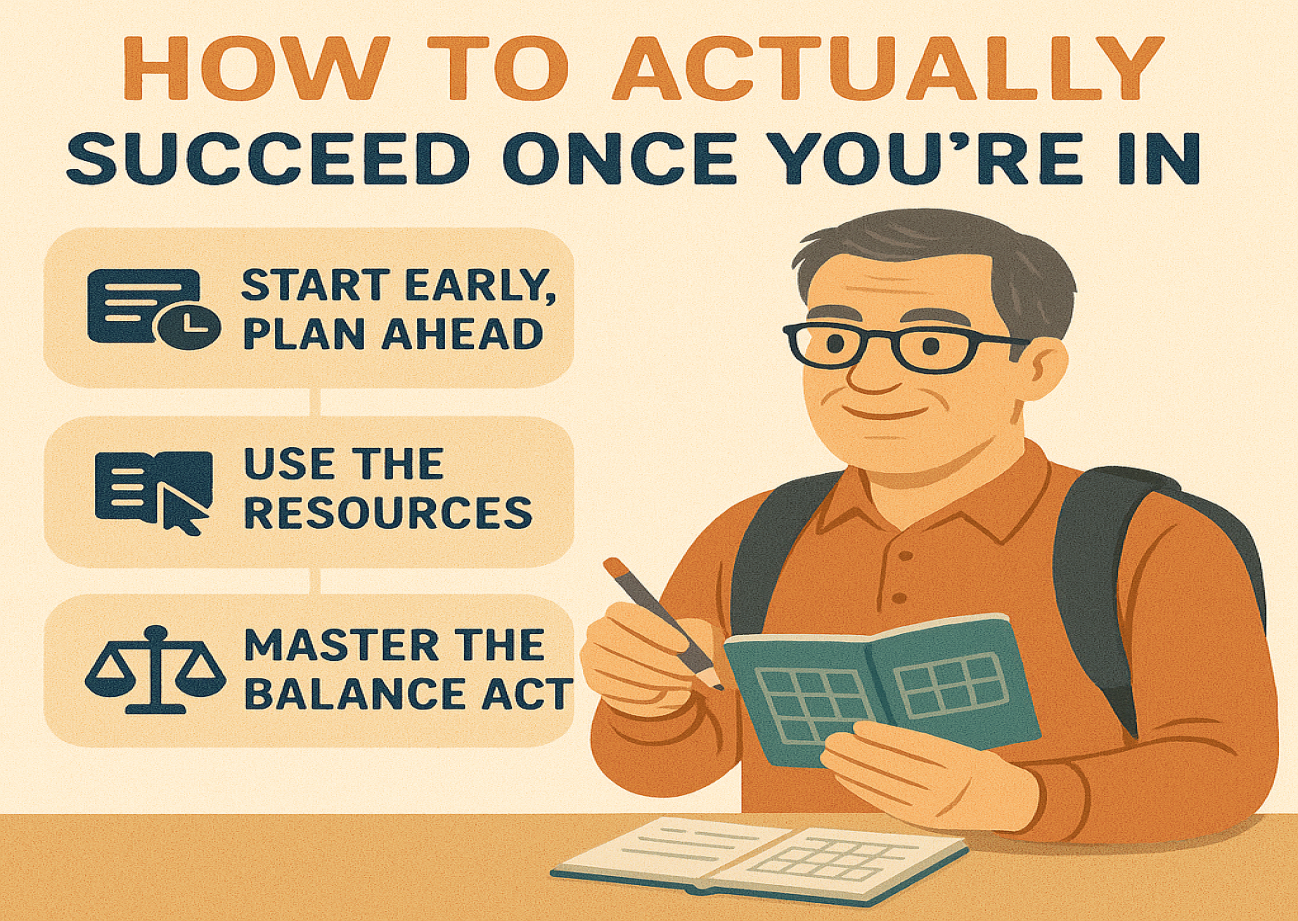
So you’ve enrolled. The dream is happening. But now reality kicks in: how do you juggle classes, work, family, and still keep your sanity?
Good news — plenty of people have figured this out, and so can you.
Start Early, Plan Ahead
Admissions isn’t something you want to cram like a final exam. Collect transcripts, apply for aid, and talk to admissions counselors sooner rather than later. The earlier you start, the smoother it goes.
(Pro tip: make friends with checklists and calendars. They’ll save your brain space for the actual learning part.)
Use the Resources (Seriously, They’re There for You)
Most schools offer way more support than you realize: tutoring, writing centers, study skills workshops, even counseling services. Online programs usually have virtual versions too.
Don’t feel like you’re “bothering” anyone. These resources exist to help you succeed — and you’re paying for them, so use them.
Master the Balance Act
This might be the trickiest part. Classes. Job. Family. Life. All in one blender.
Here’s the key: flexible scheduling. Online, hybrid, evening, or weekend courses let you work around your real life.
And if you’ve got kids or grandkids depending on you? Look into schools that offer childcare support — 24% of adult learners have dependents. No shame in getting help so you can focus.
Also — talk to your family and employer about your schedule. Having their buy-in makes a huge difference.
Education as a Lifelong Adventure
Going back to school after 50 isn’t about chasing grades or trying to keep up with kids half your age.
It’s about writing your next chapter.
Because the old script we grew up with? The one that said life peaked in your 30s and 40s, and after that it was just a slow shuffle into retirement? Total nonsense.
The truth is, your 50s, 60s, and beyond can be the most energized, exciting, and purposeful years of your life. Education is just one way to fuel that fire.
Think about it:
- It can make you healthier — literally adding years to your life.
- It can make you wealthier — protecting you from layoffs and boosting your paycheck.
- And maybe most important… it can make you happier. Following passions, building confidence, proving to yourself you can still crush new goals.
That’s not going “back” to school. That’s moving forward — toward the kind of life you want to live.
So here’s my challenge: stop asking, “Am I too old for this?” and start asking, “What’s stopping me?”
Because the classroom door? It’s wide open. And the only person holding you back from walking through it is the one in the mirror.
